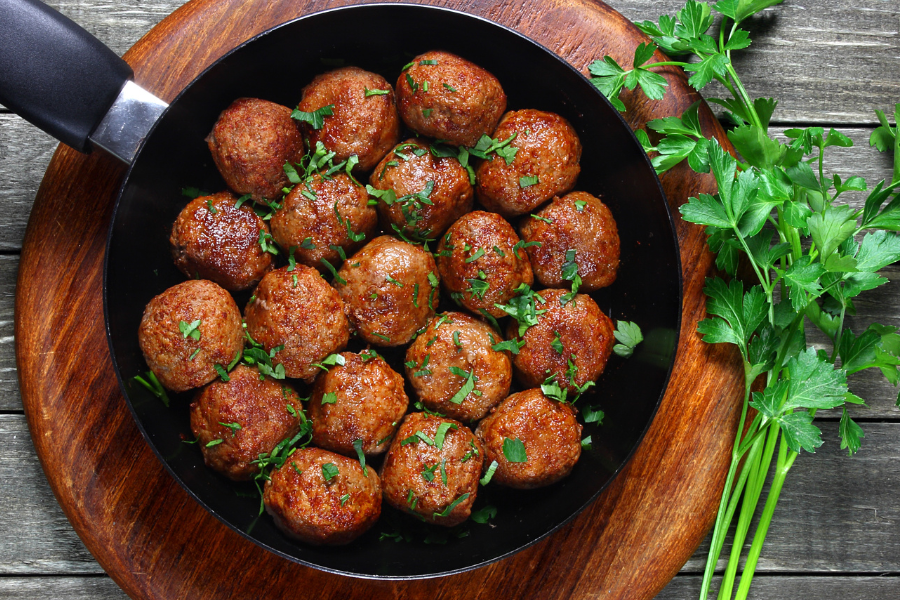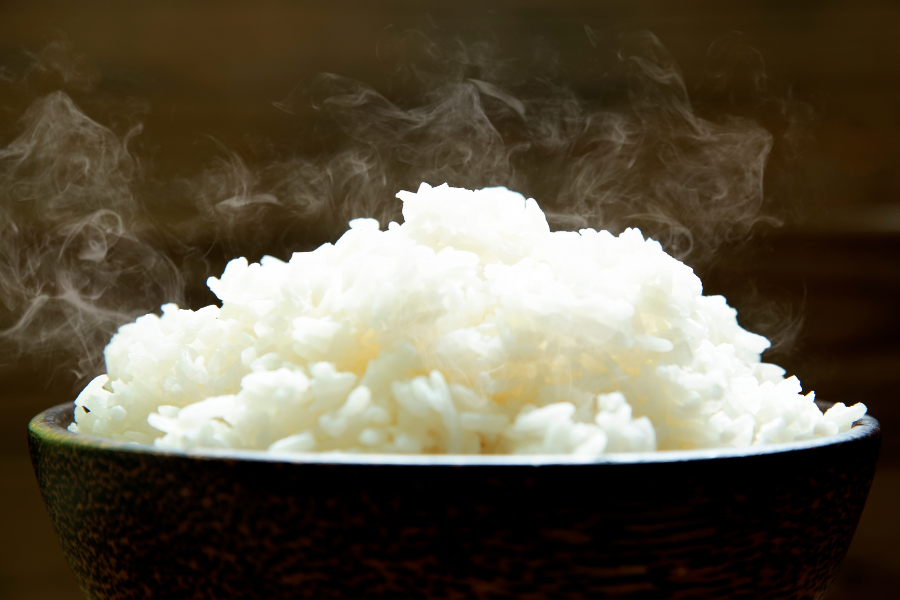The Paw-some Benefits of Pumpkin for Pups
If you are a dog parent, then surely you have heard the murmurs - about pumpkin being excellent for dogs. Is it all hype or is there some truth to this? Well, let's get our tails wagging out of of excitement, because we are about to deep dive into all things pumpkin and dogs. Pumpkin can not only spice up your fall lattes and pies, but it could also become your dog's new favorite treat.
In this blog, we are answering the question "Is pumpkin good for dogs?" We will also cover how to safely make this great fruit (yes, technically it is a fruit) a part of your pet's diet, fun ways to prepare it, and of course, a few of the most common questions that many dog owners have. Ready to dive in and get those paws dirty in that pumpkin patch? Let's go!
Why Pumpkin is a Nutritional Powerhouse
Pumpkin is a nutrient-dense food, and by nutrient-dense we mean it is low in calories but high in stuff that supplies the body with energy, like vitamins and minerals.
Pumpkin is packed with vitamins A and C, and it contains key minerals like iron and potassium. These vitamins and minerals are vital to maintaining optimal health, for both humans and dogs. Vitamin A, as you probably know, supports eye health, and vitamin C is an antioxidant that strengthens the immune system.
Another benefit of pumpkin is the fiber that it contains. Fiber helps in digestion (as do probiotics for dogs, might we add) and fighting both constipation and diarrhea. If your pup has a sensitive stomach, a small quantity of pumpkin could just be what the vet ordered.
How to Safely Introduce Pumpkin to Your Dog's Diet
Like anything new that you give to your dog, do it slowly and cautiously. Start off by offering them a small amount, like a teaspoon, and see how your pup does. Look out for any signs of allergies or an upset stomach. Do this, and if everything goes okay, you can gradually increase the amount.
Most consider canned pumpkin to be the easiest way to go. It is convenient, no doubt, but just be sure it's only pure pumpkin and not a pumpkin pie mix, which could contain sugars and spices that are not good for dogs.
Fresh pumpkin will also work, but it is a lot more labor-intensive to prep. You will have to scrape out the seeds and roast the flesh until soft, then mash it and store portions of it in the fridge.
The Fiber Factor in Pumpkin
As we have mentioned, one of the biggest bonuses with feeding pumpkin to your dog is the fiber, which is helpful in regulating bowel movements. The soluble fiber in pumpkin holds moisture, which can both soften hard stool and minimize diarrhea.
In this way, pumpkin offers sort of a two-in-one benefit, a double whammy if you will. This dual action makes pumpkin a unique addition to your pet's diet.
But remember, moderation in feeding your dog pumpkin is absolutely key. Too much can have negative effects and lead to digestive upset.
Pumpkin as a Weight Management Tool
If your dog is plumping up a tad too much, pumpkin may be able to come to the rescue as a part of a weight management plan (that ideally your vet constructs with you). With a low calorie count and a lot of fiber, pumpkin can help your dog feel fuller longer.
You can also replace part of their daily food with a small pumpkin portion so that their intake of food is reduced without them going hungry. Such a replacement will be most helpful for those dogs who need to shed some extra pounds but are always acting like they are in dire need of more food.
Big decisions like altering your dog's diet should be done under the consultation of the vet. Your vet will be able to give recommendations on portion sizes, and make sure your dog is still getting the nutrients they need to thrive.
Creative Ways to Serve Pumpkin to Your Pup
Pumpkin really doesn't have to be a snooze, either! There are lots of fun ways to work it into your dog's meals. The easiest route is to simply mix in with their kibble for added flavor and moisture. We also love to freeze pumpkin puree in ice cube trays for a cool treat on a hot summer day.
If you are a DIY person, you can try making homemade treats for dogs with pumpkin as the main player. Your dog will likely love the taste, and you can feel good about knowing exactly what's inside the treat.
And for another cold option, you can stuff a Kong with pumpkin, then freeze the pumpkin-filled Kong. It'll entertain your dog and cool 'em down.
Can Pumpkin Treat Health Issues?
While pumpkin is no panacea, it may benefit some common issues. With its anti-inflammatory properties, pumpkin may help dogs with joint issues. (Another great food to look at that has anti-inflammatory properties is turmeric).
The antioxidants contained in pumpkin can support immune function, which is really good if your dog is older or is recuperating from an illness, as the nutrients in pumpkin can help in building strong defenses. But remember, all health issues and treatment plans, including dietary changes should be validated by a veterinarian.
Common Concerns About Feeding Pumpkin
Allergies and sensitivities to foods exist for dogs and for humans, and although uncommon, some dogs may have adverse reactions to pumpkin. Keep an eye our for any out-of-the norm symptoms or behavior like itching, scratching (more than normal), or digestive troubles.
This is why you should start with a small amount of pumpkin for your dog, so that if your dog does have an adverse reaction, it hopefully will not be as bad as if you fed them a lot to start!
How Much Pumpkin is Enough?
The amount of pumpkin you should give your dog depends on their size, weight, and dietary needs. Generally, a teaspoon for small dogs and a tablespoon for larger breeds is good.
Always keep an eye our for adverse reactions, and adjust the amount you give them if needed.
The Final Verdict on Pumpkin for Dogs
To sum things up, a great add-on to your dog's diet is pumpkin (in small amounts, and not too frequently). It is tasty, full of potential health benefits, and has some nice digestive perks!
Just be sure to introduce it gradually, monitor your dog's response closely, and always consult your veterinarian for specific advice concerning your dog.
FAQ
Is Pumpkin or Rice Better for Dogs with Diarrhea?
When it comes to helping your dog with an upset tummy, both pumpkin and rice can be beneficial, but they work in somewhat different ways. Pumpkin, with its high fiber content, can help with regularity (especially if your dog is constipated). Rice, on the other hand, is certainly easy to digest and can also help solidify stools by absorbing excess water in the digestive tract.
Choosing between pumpkin and rice often depends on your dog's specific situation and their reaction to each food. Some dogs may find pumpkin more palatable, while others might prefer the neutral taste of rice. For mild diarrhea, you might start by offering a small amount of either food and observing your dog's improvement.
Is Pumpkin Puree Okay for Dogs?
Yep, pumpkin puree is absolutely okay for dogs. Just make sure it is not seasoned and that the only ingredient in it is pumpkin!
References
1) Batool M, Ranjha MMAN, Roobab U, Manzoor MF, Farooq U, Nadeem HR, Nadeem M, Kanwal R, AbdElgawad H, Al Jaouni SK, Selim S, Ibrahim SA. Nutritional Value, Phytochemical Potential, and Therapeutic Benefits of Pumpkin (Cucurbita sp.). Plants (Basel). 2022 May 24;11(11):1394. doi: 10.3390/plants11111394. PMID: 35684166; PMCID: PMC9182978.



